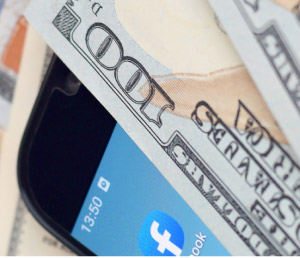Protect Yourself
Sharon Koehler
Stone Industry Consultant
 Obviously, it’s a new year, and traditionally, it’s a time of reflection and new beginnings. We’re all sitting around making and probably breaking our New Year’s resolutions: lose weight, stop smoking, travel more, drink less, find a different job, spend more time with family, etcetera.
Obviously, it’s a new year, and traditionally, it’s a time of reflection and new beginnings. We’re all sitting around making and probably breaking our New Year’s resolutions: lose weight, stop smoking, travel more, drink less, find a different job, spend more time with family, etcetera.
However, the new year should also be a time for new beginnings on your cyber security. You might be asking yourself, “Why now?” There are actually three very good reasons why:
1 – 2022 saw a record number of security and data breaches in large companies that we all deal with from time to time. Companies such as Verizon, Marriott, Twitter, Samsung, Holiday Inn, Uber, and Dropbox, just to name a few. There are many, many more.
2 – We just came out of a record holiday season. The United States citizenry spent over $9,000,000,000 (that’s 9 BILLION dollars) on Black Friday and not to be outdone, we spent over $11,000,000,000 (11 BILLION dollars) on Cyber Monday. Plus, with Small Business Saturday lodged in-between, we outdid ourselves on spending. What that means is we spent a lot of time giving out personal information, swiping cards, and visiting sites we don’t normally visit. All this activity increases the chances of fraud, hacking, and/or stolen data, either at the company level or the personal level.
3 – We are human, and I would wager that unless forced to do so, we don’t think about our cyber safety or security. It just isn’t something most of us normally think about in our day-to-day lives. So, it has probably been a while since you took steps to protect yourself. The new year is a great time to protect yourself moving forward.
What can you do to protect yourself?
- Change all your passwords.
- For extra safety, change your user names and pins as well.
- Don’t reuse passwords. Each site needs a different password. That sounds like a lot to remember but Google will store them for you if needs be.
- If the site offers it, use 2-step veri- fication. Yes, it’s a pain, but it is safer. (2-step verification is when you input your username and pass word and the site sends a code to you that you must enter to log on to the site, usually either to your mobile device or your email.)
- Check to see if a company you order from has been breached. It’s a sim- ple Google search. A U.S. company that has been breached is required by law to send you a notice of the breach, but the notice could get lost in spam or junk mail. Or maybe you have changed your email since you last visited their site.
- Check your credit report. Each of the 3 big credit reporting companies (Transunion, Experian, and Equifax) will give you one free credit report per year. Basically, you can get a total of 3 free credit reports per year, one from each company. If you find an error, dispute it with the reporting agency right away.
- Use a VPN (Virtual Private Network) when browsing the inter net or online shopping. It encrypts your internet connection so no one can see what you are doing. Just be sure to do your research and pick the one that is best for you.
- Invest in a credit monitoring site like Aura or LifeLock. They can monitor things you don’t even think or know about.
- Get identity theft insurance.
If a site/company you deal with has been breached, reach out to them. Frequently, a breached company will offer support like free credit monitoring or other help if you wind up a victim because of the breach. Remember, detection of breaches is not instant. It can take months for a company to realize there is a problem. They should notify you but by then it may be too late.
What should you do if your information is stolen or hacked?
- Notify the authorities.
- Notify the credit bureaus.
- Notify the FTC. IdentityTheft.gov
- Add a fraud alert to your accounts with the 3 credit reporting agencies. It will stay in your account for a year. It notifies any company pro- cessing a credit application in your name that you may be the victim of fraud and they need to take extra steps to verify the identity of the
- person trying to open an account. It won’t count against you. It is meant to protect you.
- Or freeze, aka lock your credit. This should be considered a drastic
- measure and used as a last resort. It essentially “locks” your credit where it is. No new accounts can be opened in your name, at all. Not by anyone else — but also, not by you. If you want to open a new account, you will need to “unfreeze” your account first.
- If you have identity theft insurance, file a claim.
It seems like, these days, data breaches and identity theft are an everyday occurrence. You can’t get away from them. However, that doesn’t mean you need to make it easy for the thieves, hackers, and all-around bad guys. Protect yourself. And have a great 2023.
Please send your thoughts and comments on this article to Sharon Koehler at Sharonk.SRG@gmail.com .